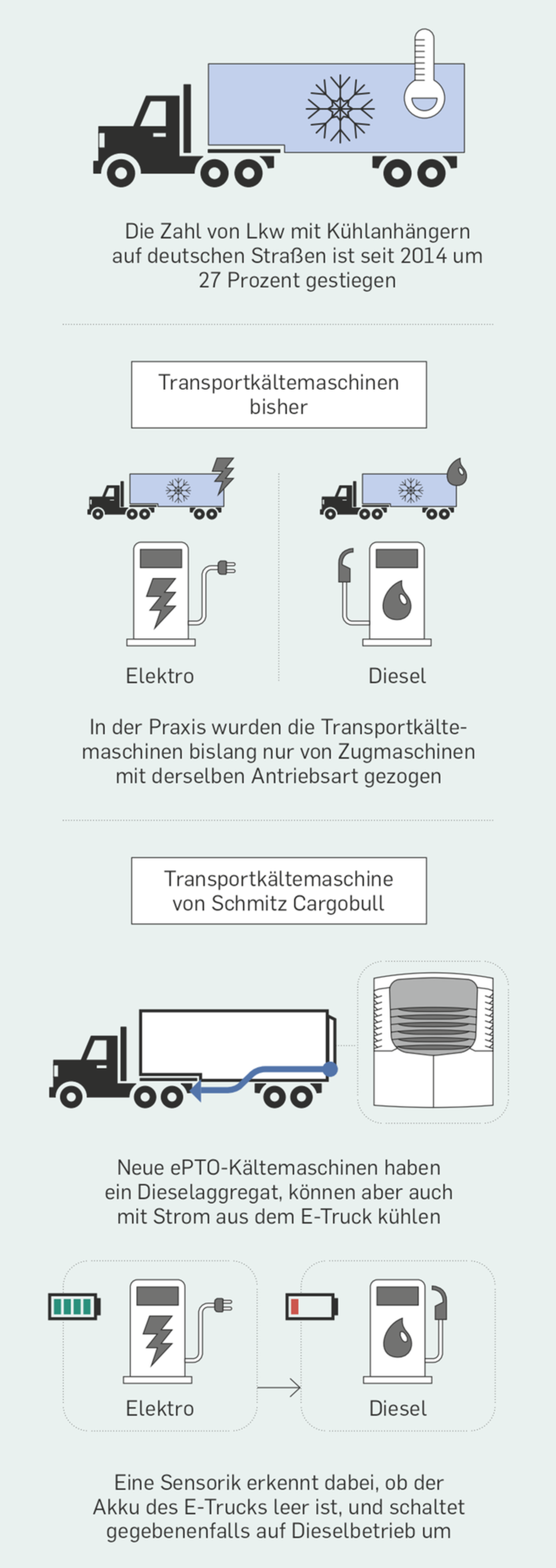Green Revolution: How to save electricity in refrigerated truck trailers

Achieving climate neutrality is a mammoth task. Capital reports on innovations along the way. This time: a hybrid-powered refrigerated trailer for trucks.
There are approximately 180,000 refrigerated vehicles in operation on German roads. These vehicles' cooling units, known as transport refrigeration units, are typically powered by diesel. However, there are battery-electric alternatives. The problem: purely electric refrigeration units require large and therefore heavy batteries for flexible use, which have so far been uneconomical.
innovationTrailer manufacturer Schmitz Cargobull has developed a hybrid transport refrigeration unit called the S.CU d80 ePTOready. The standard unit runs on diesel, but has an additional interface (ePTO) that allows it to be powered by electricity from an electric tractor unit. The system automatically detects whether it is connected to the high-voltage battery of an electric truck, meaning it should run on electricity, or needs to switch to diesel operation. Since most fleets include both electric and diesel-powered trucks, this flexibility is important.
In practiceAccording to the manufacturer, the use of the hybrid transport refrigeration unit with a total operating time of 1,500 hours (including 200 hours in diesel operation) can save more than €2,700 in energy costs per refrigerated trailer per year.
“Electricity is only economical on standard routes”Norbert Flacke, Schmitz Cargobull
What's missing for the electric breakthrough in refrigerated transport? There's a lot, but the major hurdles are the high purchase price and the practicality of the technology. Purely electric refrigerated trailers with their own batteries are currently only economical for standard routes. Drivers also want flexibility. Therefore, the hybrid solution is ideal.

>> The Week – Newsletter <<
The most important topic of the week in business, finance, and politics – concisely categorized by Capital editor-in-chief Timo Pache. Every Friday, free of charge, and with plenty of reading tips for the best Capital stories of the week.
How much more expensive is it compared to the battery-powered version? The additional cost is negligible. We don't have to buy an additional battery, just an interface. That's a few euros and an additional ten kilos in weight.
You're currently the only provider of hybrid technology. That's true. Our competitors install a battery underneath the trailer to replace diesel. But that means a ton more weight and less payload. In our view, this doesn't make economic sense in the end.
Illustration: Carmen Reina
Published in Capital 9/2025
capital.de





